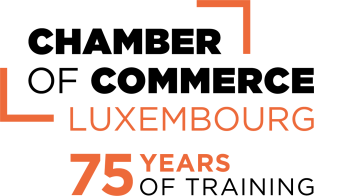

Founded in 2019 by Vojtech Seman and Marcin Wolski, Rejustify is hosted by the LHoFT, the Luxembourg’s dedicated Fintech centre. The startup developed a technology that uses Artificial Intelligence (AI) and machine learning algorithms to automate data preparation. Their solution helps data scientists and financial analysts to find, access and combine data from multiple sources intuitively. Now, Rejustify facilitates AI and data innovation for SME businesses too.
What’s your story?
Vojtech Seman: I was born in Brno, Czech Republic. I studied economics and finance at universities in Prague, Budapest and Paris. I started my career at the European Investment Bank (EIB) where I was responsible for transaction monitoring in project finance. In short, I had to monitor hospitals, power plants and motorways to produce credit reports and spreadsheets with updated figures on a regular basis. I’ve done a similar thing for the European Investment Fund (EIF), only for different financial products and also worked on a digitalization project at a depositary bank of the BNP Paribas Group. Whether in banks, funds or large institutions, my observation was the same. Data are at the heart of nearly every process. But searching, accessing and formatting data is a tiring and boring process.
Marcin Wolski: I’m from Poland. I studied economics and received my PhD at the University of Amsterdam. I landed my first job at the EIB, where I also first met Vojtech. I was closely involved in technology and data. I was lucky that I could develop my skills along with my interest in economics, while studying during my professional career.
What motivated you to start this company together?
V. S.: In 2018, I attended a workshop at the House of Entrepreneurship where someone mentioned the Founder Institute which was soon to be launched in Luxembourg. The Founder Institute is a worldwide network that supports pre-seed founders in validating their ideas and getting their startup ready for seed-stage. To date, this network has helped launch over 6,500 companies around the world. In December 2018, I applied to their program and waited to see if I would be accepted. Before the program launched, I ran into Marcin at one of the Fintech Friday events at the LHoFT. Being both involved in data preparation, we quickly realized that we had a common struggle and not just the two of us.
M. W.: Indeed, searching, downloading and formatting data from many databases is a common bottleneck for many companies. This process, which in the professional jargon is called the ETL (from Extract, Transform and Load), is very complex and time-consuming. Analysts spend most of their time to manually prepare nice spreadsheets instead of putting their time to actually analyse them. This is how we decided to join forces. We went through the Founder Institute’s program together and, as a result, co-founded Rejustify in 2019.
In a few words, what do you offer?
V. S.: We accompany businesses on their whole data value journey from organizing data to turning them into quantified insights. We have developed a semantic ETL layer technology that works as a search engine to find, access and merge data from multiple sources in real-time intuitively. For this data preparation purpose, Rejustify uses machine learning. Reusing data that companies already have and enriching them with additional sources becomes fast and flexible. Having the data ready and organized is a must before any report, analysis or predictive machine learning model takes place. In the end, every dataset becomes ready for another round of machine learning and AI modelling, this second time to generate the business insights.
Why is data collection so important?
M. W.: Every story begins with data. The world is generating data at an unprecedented rate. And there are many different types of data, like numeric (amounts, rates, etc.), categorical (gender, color, etc.), free text (surveys, etc.) but also images, audio files and videos. Data collection is the process of gathering and measuring information on variables of interest, in an established systematic fashion that enables one to answer stated research questions, test hypotheses, and evaluate outcomes. It is the first step to improve our understanding about any phenomena, from biology and physics to social sciences. This is how we push the frontier of science and make the world a better place. In business you typically use data analysis to find recurring patterns. By understanding and anticipating these patterns, companies can better capture market opportunities, and therefore boost their efficiency, revenues and growth. Bigger companies use sophisticated large-scale models to look for trends and predict future changes. But proper data processes can substantially benefit even smaller companies, by monitoring their costs, reducing waste or identifying new market opportunities.
What are the strengths of your company?
M. W.: When you start a data project, the first you’d probably see is a big mess. Before any analysis, you need to clean this mess, which means defining the right data, making sure that the units and formats are correct, possibly merging it with your old data file, etc. Thanks to Rejustify, these repetitive and boring tasks are over. It doesn’t matter if you want to update your financial statement with the most recent inflation forecasts, or if you’re interested in the number of the recently reported covid cases in your area. We are the one-stop-shop to access it all directly in a tidy and chart-ready spreadsheet.
V. S.: But it is even better than that. Thanks to AI, our tool adapts and learns the clients’ needs automatically, and follows their data search preferences. For instance, when we searched for ‘inflation’ for our data projects, we were a bit surprised that it was nowhere to be found. Until we realized that it was reported as a ‘Consumer Price Index’. After we corrected our search engine a couple of times, it learned what we meant and will serve us more accurately and faster in the future. Then, manual data preparation is prone to human errors. Machines ensure higher consistency than humans. And finally, it is the speed and perpetuity. Why spend 80% of analyst’s work time to prepare spreadsheets for a monthly report over and over again? Rejustify enables an intuitive data preparation and gets it updated in real-time whenever someone is looking at it. Simple reporting should not be the end target. It is actually a great opportunity to start data enrichment from external sources to uncover hidden relationships between data, turn it into stories and make fast decisions. And even the decision making can be largely automated. Back to speed, it is the number of sources that makes reuse of data difficult. Rejustify has a data catalogue of more than 500 million source tables, covering more than 60 statistical offices, central banks, international organizations and niche data providers like Eurostat, European Central Bank or the International Monetary Fund. These are high quality data, but there are plenty of data out that are waiting to get harnessed, cleaned, structured, described and catalogized to make them discoverable, interoperable, and reusable for specific use cases that are different for each business. Rejustify helps with that.
Can you give us an illustrative example where this theory applies?
V. S.: Here’s an example. Imagine a bakery that must throw away every evening everything that was produced, but didn't get sold. Still, they want to make the last customer happy by offering some choice, but wasting 10% of production is maybe too much. Currently, the number of baguettes to be baked is estimated by the shop manager and it is typically the same figure every day. The baker does not have the time nor the energy to make statistics overnight but will gradually decrease the number of baguettes he bakes if he sees too many of them go to waste. Over time, the last happy client arriving for the last baguette will have to arrive earlier and earlier, the revenues will decrease, the number of happy clients will vanish, but the costs of running a shop will remain the same. This is where Rejustify can help reduce the losses by aligning the production to very specific local conditions, taking into account influencing factors like location, price map, holiday calendars, weather and a multitude of other parameters. We deliver not only data, but also the business analytics with daily forecasts for the number of baguettes to reduce the waste by half.
Did you receive any support, advice or assistance?
V. S.: Of course! The best support comes from our families. Business wise, we rely on a network of mentors, startup communities and development programs. To name a few, it started by attending a workshop at the House of Entrepreneurship. It was then followed by graduating from the Founder Institute in May 2019 as one of the 10 companies, which brought us to a worldwide network of startups and mentors open to discuss problems and solutions. The House of Startups and the Luxembourg-City Incubator invited us as TEDx organizers to train founders in public speaking and experienced investors to advise about business strategy. We are members of Silicon Luxembourg, a community builder, and the LHoFT has an incredibly performing team organizing many events with international coverage, visibility, and impact. In December 2021, we participated in the 12th edition of Fit4Start, an accelerator programme for startups by Luxinnovation and the Ministry of the Economy in Luxembourg. We were able to benefit from coaching as well as 50,000 euros of funding from the Ministry of the Economy. Finally, since October 2022, we participate in the Startup Academy by CzechCrunch, a structured startup program incredibly well connected back at my country of origin.
We often hear that it is essential to make mistakes. What do you think about this?
V. S.: Nobody has a crystal ball to make a correct judgement all the time. When we identify a problem, we try to minimize the risk of making mistakes by seeking advice from our network of mentors and startups. Most of the time, we find someone who went through a similar issue somewhere in the world. This way we quickly learn how to control factors that can be controlled.
M. W.: If you are running a business, you need to adjust by listening to people. Sometimes, mentors have contradictory opinions. To me, the best way to learn and improve is to give it a try and adjust, if necessary.
What are your prospects for developing your business?
M. W.: We think that data and AI have a huge potential for small businesses, which is not yet fully exploited. We bring solutions, especially in the areas of data insights and business intelligence, to bridge that gap. While we still try to market our main product to big financial institutions, we see that more and more smaller companies are interested in what we are doing! They start recognizing that AI can give them a competitive advantage. Importantly, Rejustify is not only about data. It is about storytelling - what data tells us. Vojtech mentioned the bakery example. I think it is amazing that thanks to data enrichment and data insights we can reduce food waste on top of improving profits.
V. S.: Small and medium businesses are the backbone of the EU economy. While all companies meet challenges, larger ones benefit from economies of scale with larger market shares but have more difficulties to adapt. Smaller businesses may feel more pressure on their efficiency but have great advantages in their hands. They can decide to innovate much faster than large corporations. Solving today’s problems with today’s technology brings competitive advantages, efficiency, profits and growth. We continue to offer our services to financial players but are more and more looking for faster and more agile SME businesses where data and AI could help with their challenges. We warmly invite them to reach to us.
Plus d'information : www.rejustify.com
TEXT Marie-Hélène Trouillez - PHOTOS Matthieu Freund-Priacel / Primatt Photography









